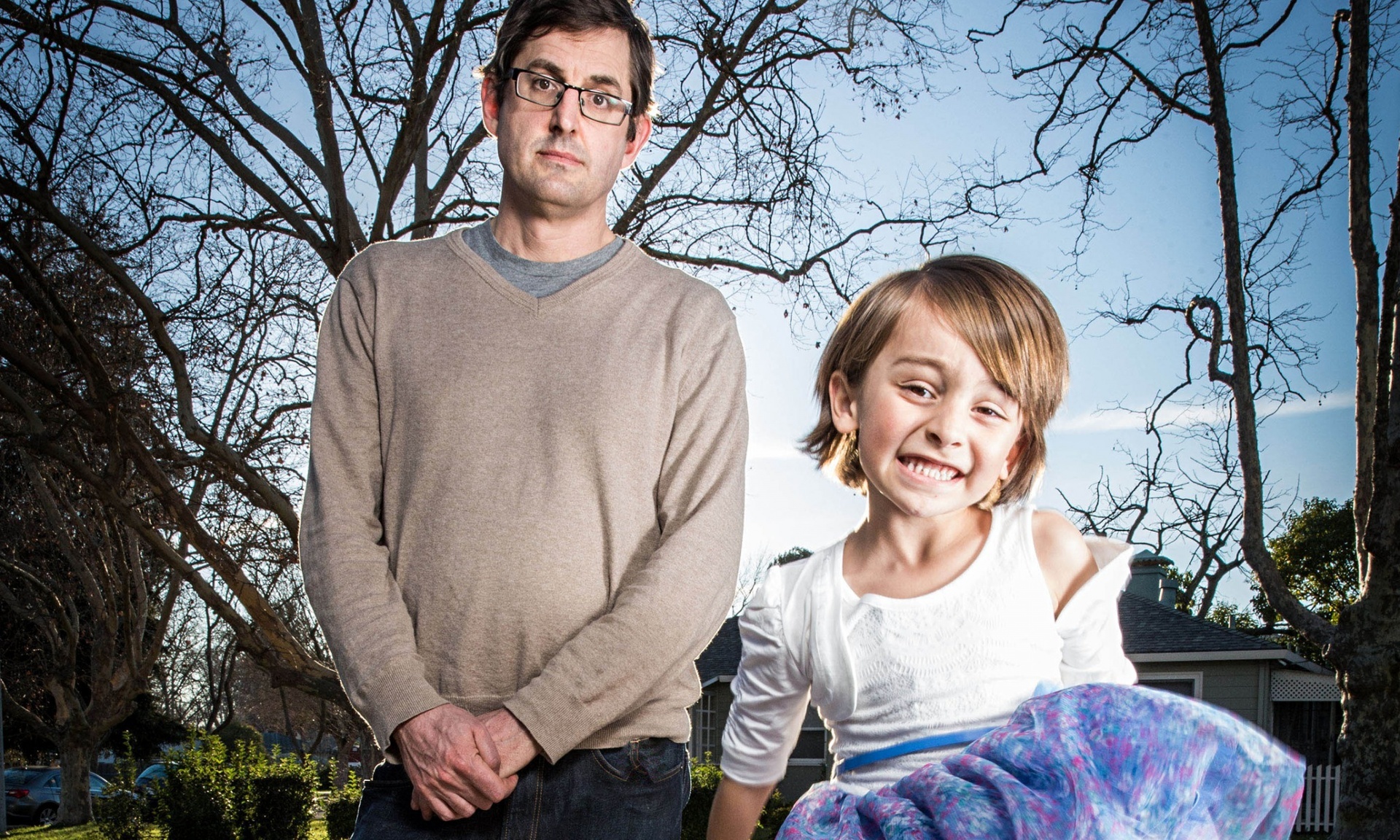The issue of trans children became a national talking point thanks to Louis Theroux’s bold BBC documentary Transgender Kids. #TransgenderKids trended for hours on social media and, aside from the usual ignorance and bigotry, which I expected, there was also an outpouring of empathy, understanding and support for the families featured. Good. This is what happens when real people are allowed to tell their own stories.
Much of the media coverage I’ve seen so far has focused on the ages of the kids Louis interviewed – some, like Lady Gaga lover Camille, as young as five. How could they possibly know? Aren’t they too young? What if they’re making a huge mistake? Louis, otherwise sensitive and informed, couldn’t help but express these fears himself, asking constant questions about how the parents could possibly know they were making the right decision, and the “heavy responsibility” this supposedly carries. Of course, his role, one at which he excels, is to play Devil’s advocate, and ask the questions people at home people will surely be thinking. I get that.
In my head though I couldn’t help but respond with a question of my own, one that Camille’s parents eventually voiced: “What does it matter?” What’s the big deal if a feminine boy or a masculine girl changes their social gender? What is so wrong about supporting them to transition socially, or to delay puberty with blockers? People who object are usually seeing it from their own subjective point of view. But it’s not about them. The idea of changing gender terrifies most people who are not trans precisely because they are not trans – the same way that the idea of not transitioning seems awful to trans people.
Just let kids be who they need to be. If they can transition one way, they can transition back again. Trust me. I was told I had to be a boy from as early as I can remember – and as you can see my family’s extensive and sometimes violent efforts were not entirely successful. There is absolutely nothing you can do to influence the way your child grows up and expresses their gender identity, but you can cause them a lot of pain and hardship by not supporting them along the way. Thank goodness the parents in Transgender Kids seemed, by and large, to get that message, but for every secure, supportive and financially comfortable family like that there are countless more where being trans is a living hell.
Research shows that the majority of trans adults got the memo we were trans at around 5 years old – a realization most of us felt we needed to hide: “It soon becomes clear that to be different in this way is socially unacceptable and as such the most common response is concealment of their true feelings.” If we also know that 94% of people who walk into gender identity clinics are adults, that means, although the figure is accelerating, only 6% of trans children are currently being identified. In other words, most trans kids are suffering in silence.
So what about turning that “terrible mistake” idea on its head? Why not ask, instead: isn’t it a terrible mistake to NOT support a trans child to transition? Because there is irrefutable evidence that most trans people will go on to transition as adults having felt enormous pressure to conceal this as kids? Because we know that doing so can lead to physical changes in puberty that most trans people will regret for the rest of their lives? Because we know that people can end up in sham relationships and marriages, which may unravel in exactly the same way as gay people marrying straight people did in the past? Because we know about the loss of jobs, friendships and whole social support networks that can happen when people transition in adulthood?
Something else we know for sure: 41% will of trans people attempt suicide if their gender issues are not treated. Research is starting to prove what the transgender community has known for years: that transition improves mental health, that regret is almost non-existent, and that trans teens who do transition become happy, healthy young adults. There is nothing confusing about any of this.
Through ignorance, well-meaning parents, like mine, have already been making terrible mistakes by not supporting their transgender children. Reparative therapy – trying to talk people out of being trans, as Leelah Alcorn’s parents did – simply doesn’t work, which is why all responsible medical bodies have come out against it. Parents have a right – and need, as this New York Times article points out – to know what will keep trans kids alive, healthy and happy, and what increases risk. Because if parents listen, support and allow them to transition, trans children thrive.
Child gender expert Diane Ehrensaft summed it up best when she reminded Louis that if, in the frankly unlikely event the child changes their mind later, then at least they’ll be alive to do so.
Credits
Text Paris Lees
Photography BBC/Freddie Claire
